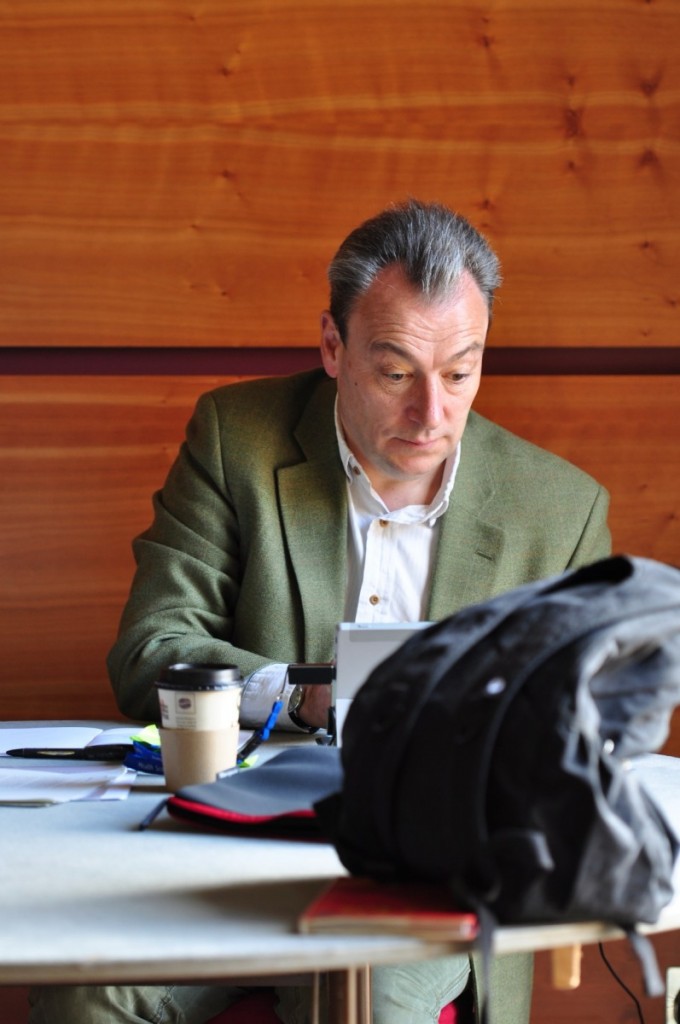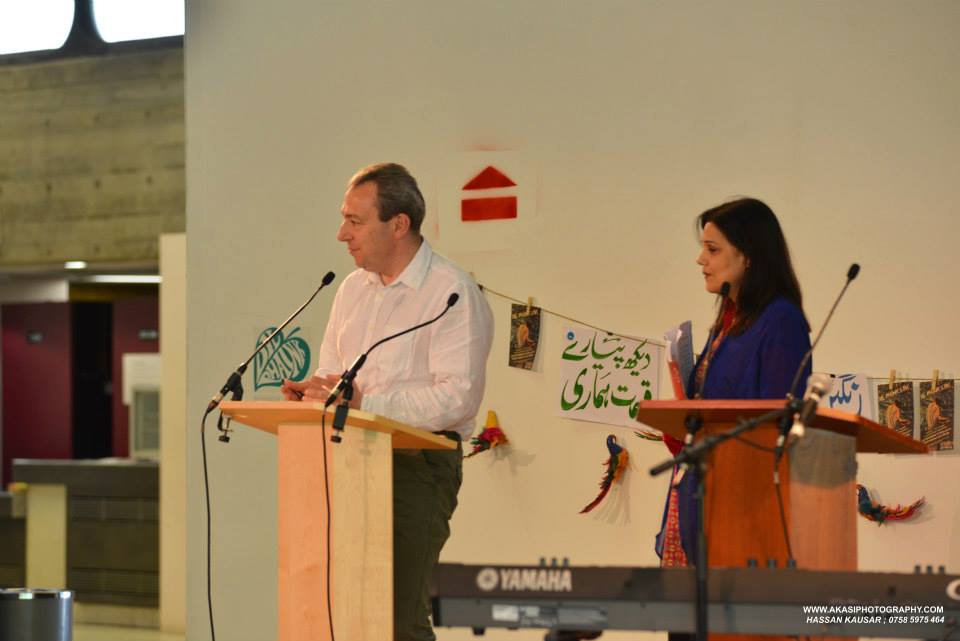Meeting the parents
29th May 2015Jim Carruth reflects on the ‘parent/child bond’ in the process of translation, with a new poem from the Glasgow based poet.

Family Relationships are a difficult business but something that most of us have in common and maybe translation by its nature and especially with living poets is a bit like that too.
So when Khalid Javaid Jan and Afshan Sajjad met up with Kathrine Sowerby and I this time in Glasgow it was a bit like a family reunion. And the family had grown. We were joined by Vicki Husband and Gerry Cambridge from Scotland and Kishwar Naheed from Pakistan.
Even among the poems we brought to share there was a family presence among the more searching ones on faith, gender and migration. In particular Afshan and I, without conferring, each had a poem about our mothers for translation.
Both poems are an attempt to capture, keep safe and cherish that special bond of parent and child – those special characteristics that make our own mother special and that need we have to tell their story. I have been reflecting on whether this parent/child bond was another way of exploring the challenge of translation.
I think what is really special with these type of translations is that you are having the opportunity to talk about the poem with the poet who gave birth to it. You can ask them how difficult the labour was, how they feel their relationship is with the poem now and what their hopes and aspirations are for it. As soon as you know this information you can never look at their poem the same way – their love and attachment for their “child” is clear. I think in this case the translator has a duty to capture some of this in any version they create. They have to safeguard the relationship between the poet and original poem and be trusted to do so.
With my farming background I was also thinking about it in agricultural terms. When a lamb loses a mother in childbirth there is an attempt to encourage a mother who has lost its lamb to accept the orphan lamb and feed it. One way to help encourage the bond is for the shepherd to strip the skin of the dead lamb and cover it over the living lamb in the hope that element of familiarity will lead to bonding.
I feel translators have a similar challenge in ensuring their version is accepted by the parent of the poem.

The Challenge of Translation
Orphan to draw down another mother’s milk
you will have to convince her from the start.
I will slit and strip the pelt from her dead son.
Come slip the skin on, be comfortable in it.
Though its scent will ignite memories of old
it cannot mask the strange voice of the new.
Grafting needs acceptance and attachment.
You must sing out to her to survive the night.
Jim Carruth was born in 19 63 in Johnstone, Renfrewshire, and grew up on his family’s farm near Kilbarchan. He has had six well-received pamphlet collections of poetry since his first, Bovine Pastoral in 2004. He has won both the James McCash poetry competition and McLellan poetry prize and was awarded a Robert Louis Stevenson Fellowship in 2009. In 2005 he was one of the founder of St Mungo’s Mirrorball, the network of Glasgow poets which he chairs. He is also the current artistic adviser for Stanza – Scotland’s International Poetry festival. He has been involved in many poetry projects, including editing an anthology for the Glasgow Commonwealth Games and having his words etched in stone as part of Andy Scott’s Kelpies sculpture. He was appointed Glasgow Poet Laureate in July 2014 in succession to Liz Lochhead and Edwin Morgan. His most recent collection was Prodigal which was published by Mariscat in 2014.
63 in Johnstone, Renfrewshire, and grew up on his family’s farm near Kilbarchan. He has had six well-received pamphlet collections of poetry since his first, Bovine Pastoral in 2004. He has won both the James McCash poetry competition and McLellan poetry prize and was awarded a Robert Louis Stevenson Fellowship in 2009. In 2005 he was one of the founder of St Mungo’s Mirrorball, the network of Glasgow poets which he chairs. He is also the current artistic adviser for Stanza – Scotland’s International Poetry festival. He has been involved in many poetry projects, including editing an anthology for the Glasgow Commonwealth Games and having his words etched in stone as part of Andy Scott’s Kelpies sculpture. He was appointed Glasgow Poet Laureate in July 2014 in succession to Liz Lochhead and Edwin Morgan. His most recent collection was Prodigal which was published by Mariscat in 2014.






